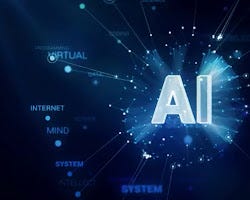
Artificial intelligence (AI) is a branch of computer science that deals with the creation of intelligent agents, which are systems that can reason, learn, and act autonomously. AI research has been highly successful in developing effective techniques for solving a wide range of problems, from game playing to medical diagnosis.
AI is already being used in a variety of ways, including:
* **Self-driving cars:** AI is used to power self-driving cars, which use sensors and cameras to navigate the road without human input.
* **Virtual assistants:** AI is used to power virtual assistants, such as Amazon Alexa and Apple Siri, which can answer questions, control smart devices, and make recommendations.
* **Medical diagnosis:** AI is used to help doctors diagnose diseases by analyzing medical images and data.
* **Customer service:** AI is used to provide customer service by answering questions, resolving issues, and providing recommendations.
In the future, AI is likely to become even more sophisticated and widespread. Some of the potential applications of AI include:To Learn More About AI: Artificial Intelligence: A Modern Approach, Global Edition 4th Edition:https://amzn.to/3OTMSg3
* **Personalized education:** AI can be used to personalize education by tailoring lessons to each student’s individual needs.
* **Smart cities:** AI can be used to make cities smarter by optimizing traffic flow, managing energy use, and providing security.
* **Space exploration:** AI can be used to explore space by navigating spacecraft, analyzing data, and making decisions.
* **Climate change:** AI can be used to fight climate change by developing new technologies, monitoring emissions, and managing resources.
The potential benefits of AI are vast, but there are also some potential risks. For example, AI could be used to create autonomous weapons that could kill without human intervention. It is important to carefully consider the potential benefits and risks of AI before it is widely adopted.
Here are some of the challenges that need to be addressed in order for AI to reach its full potential:
* **Data collection:** AI systems require large amounts of data to train and improve. This data can be difficult and expensive to collect, especially for certain tasks, such as medical diagnosis.
* **Bias:** AI systems can be biased, which means that they can make unfair or inaccurate decisions. This is because AI systems are trained on data that is collected from the real world, which can reflect the biases that exist in society.
* **Explainability:** AI systems can be difficult to explain, which means that it can be difficult to understand why they make the decisions they do. This can make it difficult to trust AI systems and to use them in critical applications, such as medical diagnosis.
Despite these challenges, AI is a promising technology with the potential to improve our lives in many ways. With careful development and use, AI can be a force for good in the world.
Sources
No comments:
Post a Comment
Welcome to Leave a Comment